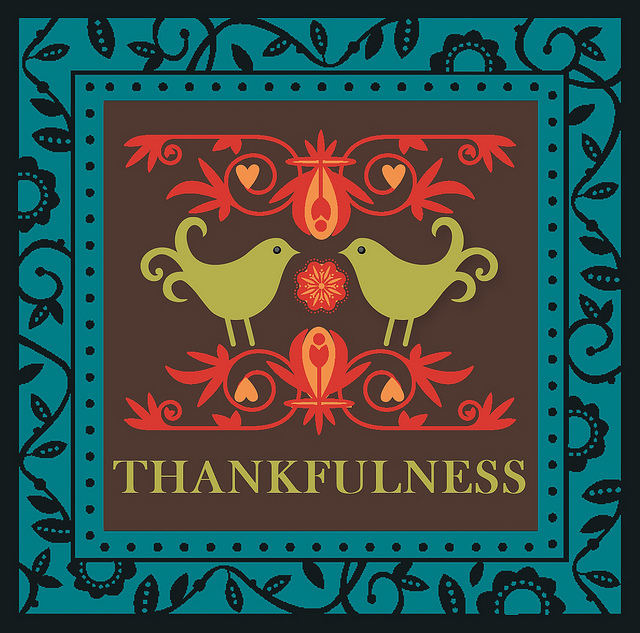It is November, and sooner or later we will all be asked the question “What are you thankful for?”
There is so much to be thankful for in my privileged life. I am literate and educated. I have a warm secure house with running water and electricity. I have a stable job that pays well. I am relatively healthy. I have a bountiful garden. I have a kind, loving, respectful husband. And so much more. But what I am most grateful for are my two beautiful boys – and for their birth mothers.
Those of us who have adopted our children can never forget their birth mothers (and sometimes birth fathers as well). Admittedly, early on in the adoption process, the term “birth mother” feels threatening. Is she the woman who will suddenly want her child – my child – back? Who may have done or consumed things during her pregnancy that I never would have had I been the one to carry the baby? Who will pass on her mental illness, her addictive tendencies, her HIV or hepatitis to my child? Who will make decisions for my child in those first few days before she signs her termination papers that differ from the ones I would have made, about breastfeeding and circumcision and vaccinations?
And then the phone rings and it’s the adoption social worker.
She has a baby that she wants to talk to you about. Your heart pounds as you realize – you are receiving The Call that you’ve been waiting months, maybe years, for. And, as the social worker tells you about the baby who might become your own, she also tells you about the birth mother. She’s 37 years old. She’s shy and soft-spoken. She’s single and the baby’s birth father has been out of the picture since the night she conceived. She is already parenting 6 children and her 20-year-old son is expecting his first baby next month. She knew from the time she discovered she was pregnant that she could not raise one more. Her only vice is a morning cup of coffee – she gave up the cigarettes when she discovered she was pregnant. Her parents are from the South. She was a good student and a gymnast in high school, before she got pregnant with her first child. She likes to read and to dance and to laugh. She loves R&B music. She plans to return to her job cleaning hotel rooms as soon as her youngest is in kindergarten. She doesn’t care what race, religion, or sexual orientation the people who adopt her son are; she just wants him placed with people who will love him.
Suddenly this imaginary woman who has seemed so threatening before is now a real person, a person who is vulnerable, exhausted, who has dreams for her future and for that of her new baby’s. And she is strong in ways that you don’t think you ever could be. Because you can’t ever, ever imagine giving your baby to another couple to raise and claim as their own, no matter how difficult your life might be. Which tells you that you can’t even begin to imagine how difficult this woman’s life is. Instead of being a threat, this woman is now the very person who has given your child life.
I remember an incident that occurred a few hours after discovering that I was about to become a mother. I was finishing my shift working as a nurse in the emergency department, aware that after 4 more hours, I would be starting maternity leave. In my excitement, I revealed more information to a colleague than I probably should have. After mentioning that my future son’s birth mother was currently parenting six children and had already placed a seventh for adoption a few years prior, he sneered, “Did she ever hear of BIRTH CONTROL?!” I was taken aback. Never mind the insinuation that the correct course of history would be for my soon-to-be son to never have existed at all. And never mind the disrespect hurled at anyone who has a large family (my father was one of eleven children, all much-loved and loving, so such disrespect personally stings). I was appalled that, as a fellow nurse, he had so little compassion for someone who lives in very difficult circumstances and maybe hasn’t had the luxury of health insurance, good self-esteem, access to birth control, a safe environment, or an inner locus of control. I quickly developed a hair-trigger response in defense of my sons’ birth mothers whenever they are spoken of disrespectfully. I also learned to be a little more discrete about my son’s beginnings, and only reveal them here under anonymity.
I’ve also been amazed at the number of people who assume that my sons’ birth mothers were drug addicts (they weren’t), placed them for adoption because they didn’t love them (just the opposite), or were irresponsible to get pregnant if they couldn’t raise the child (see the paragraph above and affirm to yourself, “There but for the grace of God go I.”). For most birth mothers, making an adoption plan for their child is a very difficult, heart-wrenching decision. Even if they have no doubt that it is the right choice, many grieve the decision for the rest of their lives.
I have never met either of my sons’ birth mothers face-to-face. My youngest son’s birth mother had wanted to meet us when we took placement of him, but then decided it would be too hard for her. She did call us several days later, to reassure herself that we were good people and that she had made the right decision. She asked if she could call a few times a year to see how he was doing. This arrangement of some degree of contact is called an open-adoption, and it was something my husband and I decided we would be agreeable to for both of our children (though our oldest child’s birth mother felt an open adoption would be too difficult for her emotionally and has had no contact with us).
We felt it was important for our sons to know as much information about their birth mothers and their families of origin as we could provide. We want them to know that their birth mothers are real women who have complicated lives complete with joys, struggles, heartaches, celebrations, dreams, and mistakes. They make decisions every day based on a culture, personal history, economic situation, ethics, and degree of personal support that may be very different from what we base our decisions on, but, like all of us, they do the best they can each day with what they have to work with.
Some people wonder how I can be at peace with other women thinking of my sons as their sons and go to great lengths to assure me that, of course, I’m the real mother. But I insist that my children have two mothers – the ones who spent the first nine months taking care of them and then loving them enough to let them go, and the one who will raise them to adulthood. One does not negate the other. Once upon a time I could never have imagined thinking this way without feeling threatened and defensive. I have since decided that I have no right to be jealous of another person bestowing love, prayers, and good wishes on my sons. In addition to our siblings, my husband and I have several friends who are my children’s “uncles” and “aunties”, and through divorce and re-marriages on my husband’s side, my children have 3 grandmothers and 4 grandfathers. I have no problem acknowledging that, like all of these other friends and relatives, my sons’ birth mothers have made a special contribution to their lives.
This Thanksgiving, I am grateful that our baby has come home to us, that my older son is becoming such a beautiful, loving person in his own right, and that both of them are blessed by the love of so many people – including their birth mothers.
Written By: Anonymous
This wonderful Momma wanted to remain anonymous but wanted to share her beautiful story of adoption with us. Thank you!










